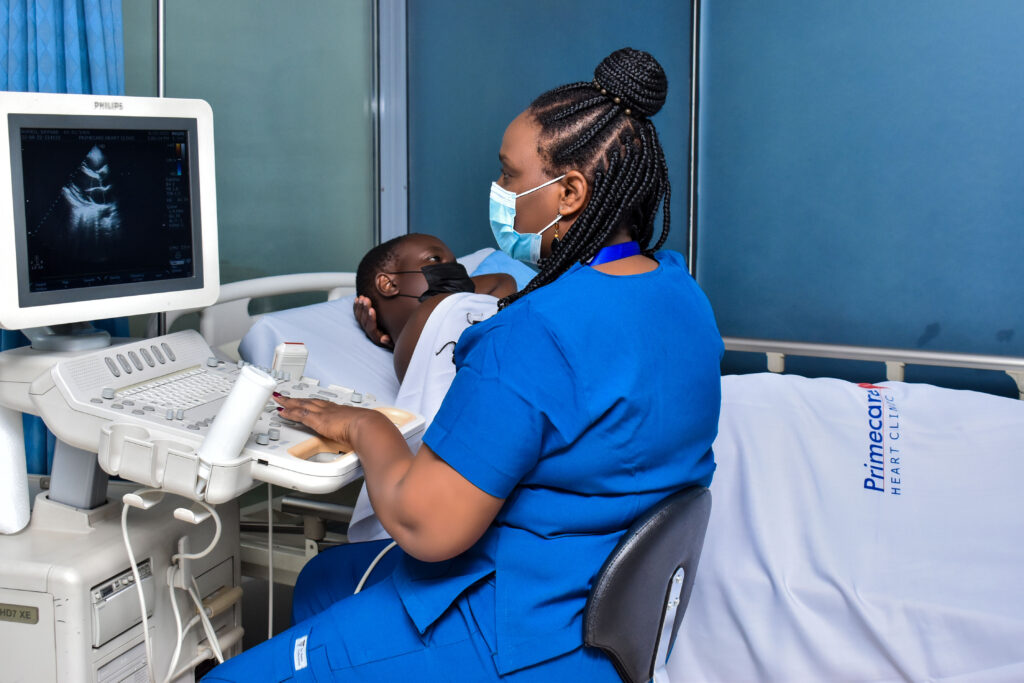
Stress Test
A heart stress test, also known as an exercise stress test or cardiac stress test, is a diagnostic procedure used to evaluate the performance of the heart, particularly its response to physical activity and stress.
Overview
a heart stress test is a valuable tool for assessing the heart’s performance during physical activity and stress. It plays a crucial role in diagnosing heart conditions and guiding appropriate medical interventions and lifestyle recommendations for patients with heart-related concerns.
Purpose of the Echo Stress Test
- Diagnose coronary artery disease (CAD).
- Assess the severity of existing heart conditions.
- Evaluate the effectiveness of heart treatments.
- Determine safe levels of physical activity for individuals with heart issues.
Proceudure
- Exercise Stress Test: You walk on a treadmill or pedal a stationary bike while the intensity gradually increases. This simulates physical exertion.
- Pharmacological Stress Test: If you cannot exercise, a medication is administered to stimulate the effects of exercise on your heart.
Monitoring: Throughout the test, your heart rate, blood pressure, and ECG (electrocardiogram) are continuously monitored to assess how your heart responds to stress.
Symptoms: You’ll be asked to report any symptoms you experience during the test, such as chest pain, shortness of breath, dizziness, or fatigue.
Termination: The test may be stopped if you develop severe symptoms, experience significant changes in vital signs, or if the ECG shows abnormalities.
Safety: Stress tests are generally safe, and complications are rare. However, they are performed under medical supervision to ensure your safety.
Interpretation: The results of the test help healthcare professionals determine whether there are any signs of reduced blood flow to your heart muscle (ischemia) or other heart-related abnormalities.
Follow-up: Depending on the results, further diagnostic tests or treatments may be recommended. This could include additional imaging tests or invasive procedures like coronary angiography.
Preparation: Before a stress test, you may be asked to avoid certain medications or foods. It’s essential to follow your healthcare provider’s instructions.
Benefits: Stress tests are valuable tools for diagnosing heart conditions early, allowing for timely interventions and lifestyle adjustments to manage heart health.
Emergency Cases
Please feel welcome to contact our friendly reception staff with any general or medical enquiry.